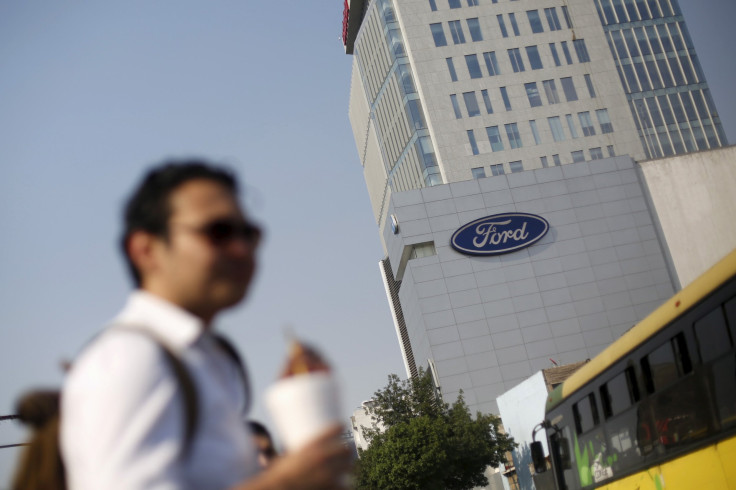Products That Come From Mexico: US Imports Of Cars, Food, Oil And Other Goods Could Get Much More Expensive Under Trump

As part of his plan to fund his promised “big, beautiful wall” on the southern U.S. border—which Mexico, it turns out, is not going to pay for—President Donald Trump may effectively raise the price of numerous products that come from America’s third largest goods trading partner.
Namely, the prices of cars, trucks, buses, vehicle parts, televisions, computers, telecommunications equipment and fruits and vegetables could all rise noticeably, as a result of not only proposed tariffs on Mexican goods as a means of paying for said wall, but Trump’s stated intentions to eliminate the North American Free Trade Agreement, more commonly known as NAFTA.
After Trump signed an executive order Wednesday kicking off the “immediate construction of a physical wall on the southern border,” the two top congressional leaders, Sen. Majority Leader Mitch McConnell (R-Kentucky) and House Speaker Paul Ryan (R-Wisconsin), said at a Thursday press conference that they expected the cost to be in the range of $12 billion to $15 billion. As Press Secretary Sean Spicer suggested in a separate press conference Thursday, that expense may be covered by a 20 percent tax on imports to the U.S. from its southern neighbor. And that’s a lot of goods.
The total value of products imported from Mexico totaled $296.4 billion in 2015, according to the U.S. Census. Multiply that by 20 percent, and that’s an additional $59.28 billion paid by consumers and businesses whose inputs come from the country.
The price hikes could be particularly acute in the auto industry, as car parts and accessories constituted the largest portion of Mexican import goods to the U.S., with $42.9 billion, according to the Census, followed by buses, trucks and “special purpose vehicles,” with $29.1 billion, and both new and used passenger cars, with $23.4 billion.
The auto industry doesn’t plan to adjust to Trump’s imposition of trade barriers, according to a study by industry forecaster LMC Automotive Limited released Jan 18. Automakers, particularly General Motors, Hyundai, Ford, Toyota and Volkswagen, planned to not only maintain their 2016 share of Mexico-based production, but increase it by 2020. Nine out of 13 automakers surveyed planned to increase their share of U.S. sales built in Mexico over the same period. Put simply, Americans could soon be paying a lot more for their cars.
Mexico is also the second-largest external supplier of U.S. agricultural goods, with $21 billion with of imports in 2015. Its main products are corn, wheat, soybeans, rice, beans, cotton, coffee, tomatoes, beef, poultry, dairy and fruit—including the high-selling avocado—according to the Central Intelligence Agency’s World Factbook.
Americans bought $15.4 billion worth of computers, $14.3 billion in telecommunications equipment, $12.6 billion in electrical equipment and $12.5 billion in TVs and video equipment from Mexico in 2015 as well, according to the Census.
Household spending, the Committee for a Responsible Federal Budget wrote International Business Times in an email, could rise by $120 on average as a result, and even if the Trump administration doesn’t follow through on its 20 percent tax plan, there’s another way prices of Mexican goods could rise.
Trump ran on a pledge to “tell NAFTA partners that we intend to immediately renegotiate the terms of that agreement,” according to his campaign site. The 1994 trade agreement brought the tariffs that had existed on 60 percent of imports from Mexico—which averaged around 7 percent, with 11 percent for agricultural goods and a maximum of 35 percent for some products—gradually down to zero, according to the Congressional Research Service.
Without NAFTA, Americans could again face such tariffs on Mexican goods—cars, computers, coffee and even Trump Signature Collection suits.
Will the 20 percent tax on goods from Mexico apply to the Donald J. Trump Signature Collection suits, made in Mexico? pic.twitter.com/Vh43ke2DMX
— Matt Viser (@mviser) January 26, 2017
© Copyright IBTimes 2024. All rights reserved.






















